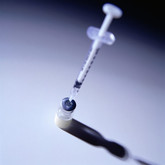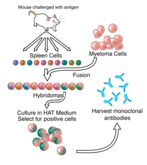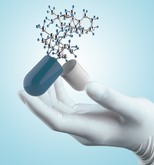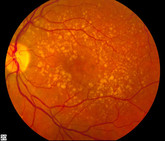Biosimilars
The impact of biosimilar insulins on public spending in Brazil
The availability of insulin for the treatment of diabetes mellitus, a chronic disease that increases with age, and its financial sustainability are of general concerns, especially for universal healthcare systems, such as the Brazilian Unified Health System (Sistema Único de Saúde, SUS) [1]. This is why similar biotherapeutic products (produtos bioterapêuticos similares, SBP) can be a cost reduction strategy in improving access to essential supplies for the population. These drugs demand less investment and acquisition cost [2].
Overview of monoclonal antibody biosimilars in Latin America
This article describes the current situation of biosimilar monoclonal antibodies in 10 countries of Latin America and their potential to reduce the cost of antibody therapies.
Challenges with implementing benefit-sharing programmes for biologicals in Europe
Diverse policies have been implemented across Europe to support the rational prescribing of biologicals. Policies limiting the reimbursement of high-cost pharmaceuticals and applying prescription quotas for ‘best-value’ biologicals (BVB) have often been combined with educational campaigns about biosimilars and with benefit-sharing (gainsharing) initiatives [1, 2].
Biocon: cancer biosimilar launch in Canada and US$90 million Malaysia deal
In May 2022, Biocon Biologics launched a bevacizumab biosimilar co-developed with Viatris (formerly Mylan), in Canada; and in April 2022, Biocon was awarded a three-year contract, worth US$90 million, by Malaysia's Ministry of Health
American Academy of Ophthalmology biosimilars position statement published
The American Academy of Ophthalmology issued a policy statement on the use of biosimilars in ophthalmic practice in January 2022 [1].
Canada approves five biosimilars in last seven months
Since November 2021, Canada’s drug regulator, Health Canada, has approved no less than five biosimilars for the treatment of diabetes, cancer, osteoporosis and autoimmune conditions.
Successful increase of biosimilar adoption in a large integrated health delivery network
Biologicals have revolutionized patient care across several therapeutic areas but are associated with significantly higher costs to patients and healthcare systems. Biosimilars offer the opportunity to reduce drug spending without compromising patient care. Medication utilization management (UM), a formulary management methodology, can be used to facilitate the adoption of biosimilars. Author Sophia Humphreys describes an innovative and strategic biosimilar adoption programme that was developed and implemented at Providence St Joseph Health [1]. Providence is a large integrated health system including 53 hospitals, 1,085 clinics and an annual drug spend of >US$1.2 billion.
US prescription drug expenditure projection report
United States expenditure on pharmaceuticals was up in 2021, finds a report published in American Journal of Health-System Pharmacy [1]. It also highlights that increased uptake of biosimilars is allowing for healthcare savings yet overall spending on drugs in the US will increase by up to 6% in 2022.
Lucentis biosimilars approved in the UK and Korea
The United Kingdom’s (UK) Medicines and Healthcare products Regulatory Agency (MHRA) and South Korea’s Ministry of Food and Drug Safety have approved biosimilar versions of Genentech’s ophthalmology drug, Lucentis (ranibizumab).
Patient perspectives on biosimilars in a high uptake country
Several surveys have shown that challenges for patient acceptance of biosimilars include patients’ concerns of quality, safety, and efficacy [1-3], however, there has been lacking more in-depth knowledge of the patient perspective and the underlying rationales for such perspective. Therefore and considering Denmark has one of the highest biosimilar uptakes [4], Varma et al. [5] investigated how Danish patients with psoriasis, arthritic diseases, or inflammatory bowel disease (IBD) perceived biosimilars.












